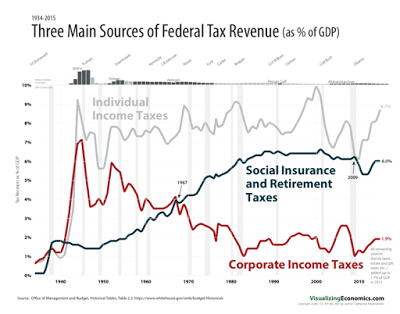The source of the graph is here. The data can be downloaded here. I think Anwar Shaikh had a paper with a title similar to this post. And the point is well illustrated in the graph. The working class itself pays for it. Share Get link Twitter Google+
Topics:
Matias Vernengo considers the following as important: Shaikh, Welfare State
This could be interesting, too:
Sergio Cesaratto writes Audio-video del Seminario “Dopo le crisi. Un dialogo interdisciplinare sul futuro dell’Europa”
Mike Norman writes Close Encounters of a Green New Deal Kind — Douglas Holtz-Eakin
Matias Vernengo writes The New School for Social Research at 100: A view from the Econ. Dept.
Mike Norman writes Climate Change, the New Green Deal, and the Resurrection of Social Democracy and the Welfare State (links)
There will be a lot of postmortems for the European Union (EU) after Brexit. Many will suggest that this was a victory against the neoliberal policies of the European Union. See, for example, the first three paragraphs of Paul Mason's column here. And it is true, large contingents of working class people, that have suffered with 'free-market' economics, voted for leaving the union. The union, rightly or wrongly, has been seen as undemocratic and responsible for the economics woes of Europe.
The problem is that while it is true that the EU leaders have been part of the problem and have pursued the neoliberal policies within the framework of the union, sometimes with treaties like the Fiscal Compact, it is far from clear that Brexit and the possible demise of the union, if the fever spreads to France, Germany and other countries with their populations demanding their own referenda, will lead to the abandonment of neoliberal policies. Aust…
The economy in Venezuela has collapsed (GDP has fallen by about 14% or so in the last two years), inflation has accelerated (to three digit levels; 450% or so according to the IMF), there are shortages of essential goods, recurrent energy blackouts, and all of these aggravated by persistent violence. Contrary to what the press suggests, these events are not new or specific to left of center governments. Similar events occurred in the late 1980s, in the infamous Caracazo, when the fall in oil prices caused an external crisis, inflation, and food shortages, which eventually, after the announcement of a neoliberal economic package that included the i…

